One of the most widely grown ornamental flowers around the globe, gardeners are understandably obsessed with the Hydrangea. The massive clusters that pop up around summertime are cherished both indoors and out, ensuring there is something to look forward to every year.
Unless, your Hydrangea decides to stop blooming. Or doesn’t start at all.
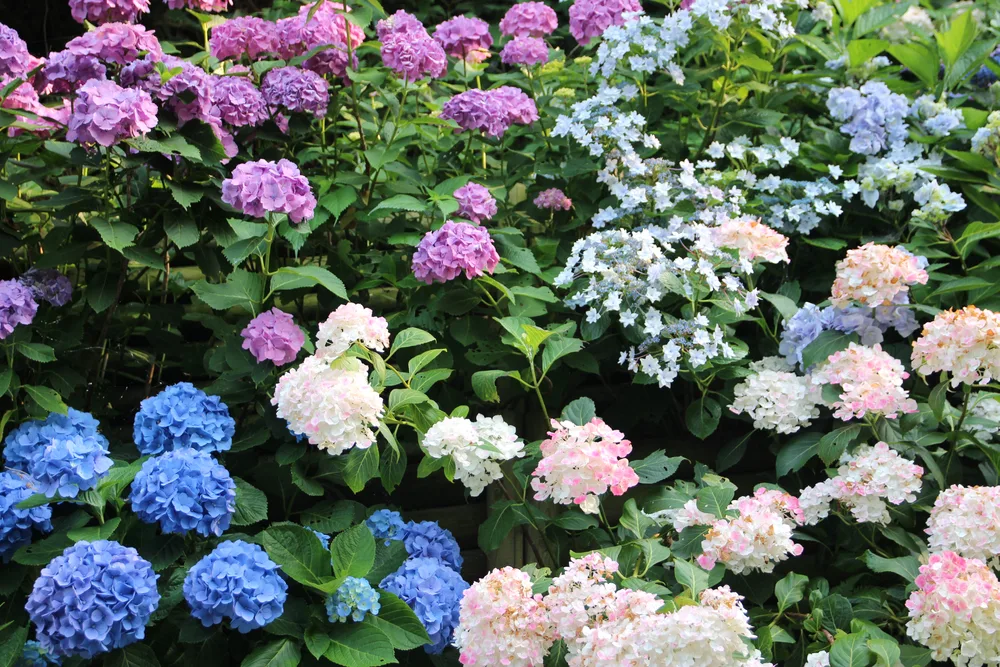
This problem, although distressing, is incredibly common. Take a look at these many reasons why your Hydrangea may lack flowers and apply the fix to see your favorite blooms emerge again.
Excessive Sunlight
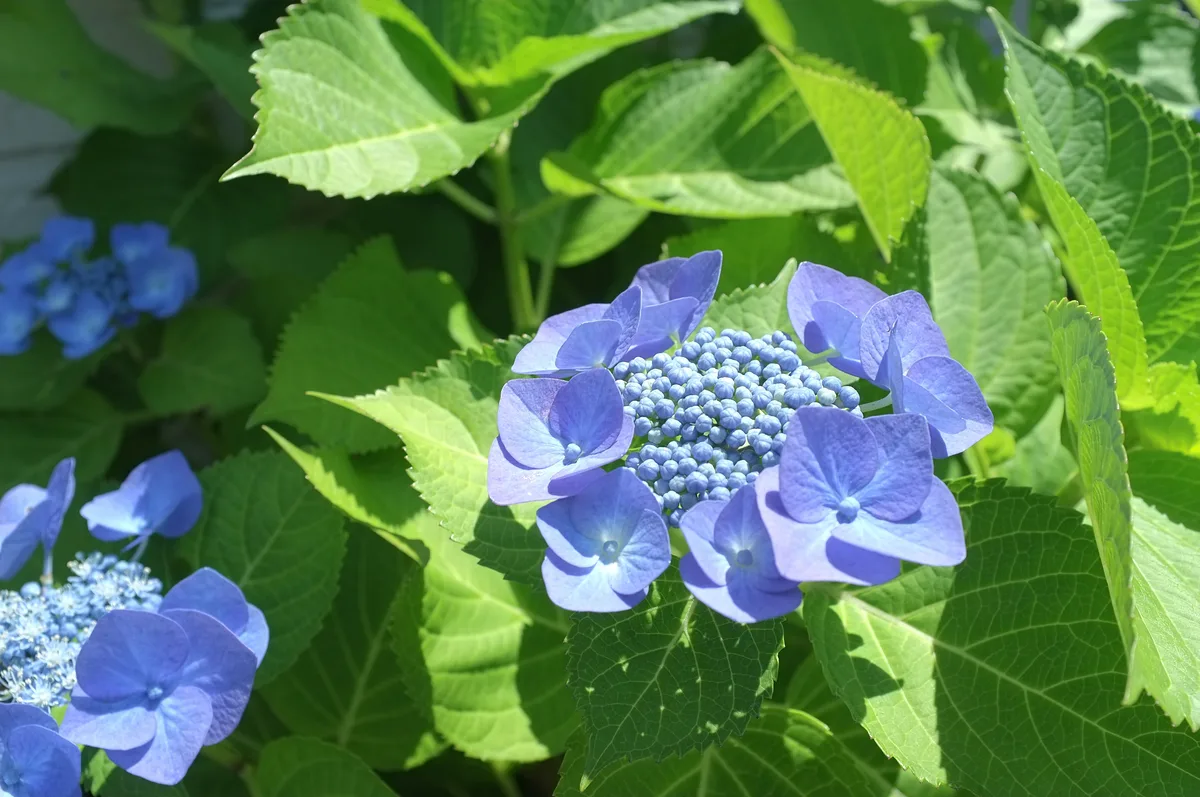
Hydrangeas grow and flower best in partially shady conditions. While some types – Hydrangea paniculata in particular – can handle a full day of direct sunlight with ease, some of the more common types need to be shaded for part of the day.
Excessive sunlight in species that aren’t used to it will result in heat stress. This dries out the soil, leaves the foliage vulnerable to scorching, and limits the plant’s ability to flower. Rather than putting out more blooms, it focuses its attention on survival. Any blooms that do pop up may look diminished and won’t last very long.
Make sure you plant your chosen Hydrangea species in the perfect spot to ensure those gorgeous blooms can appear. If you’ve already planted in the wrong spot, transplant to an area with more shade or add a temporary shade cloth above the plants to give them some relief.
Excessive Shade
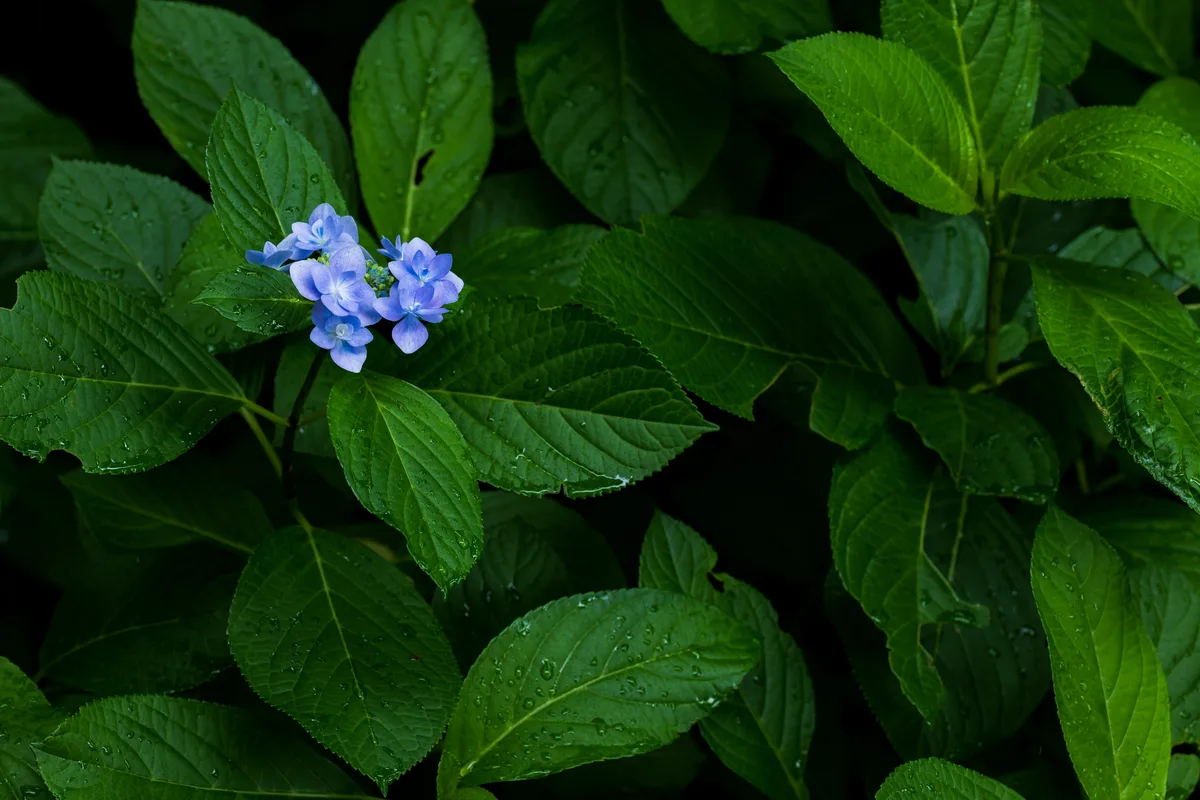
Although Hydrangeas need some shade to flower, too much can be a bad thing. These plants grow in forest habitats where they are protected by canopies above, receiving bright dappled sunlight throughout the day. If they receive anything less than four hours of sun per day, they won’t have enough energy to put out blooms.
Avoid planting in areas with full shade. If you’ve planted under a tree that has only recently filled out, consider pruning to allow more light through to the Hydrangeas underneath. Alternatively, transplant to a sunnier spot in fall or early spring.
Nutrient Deficiency
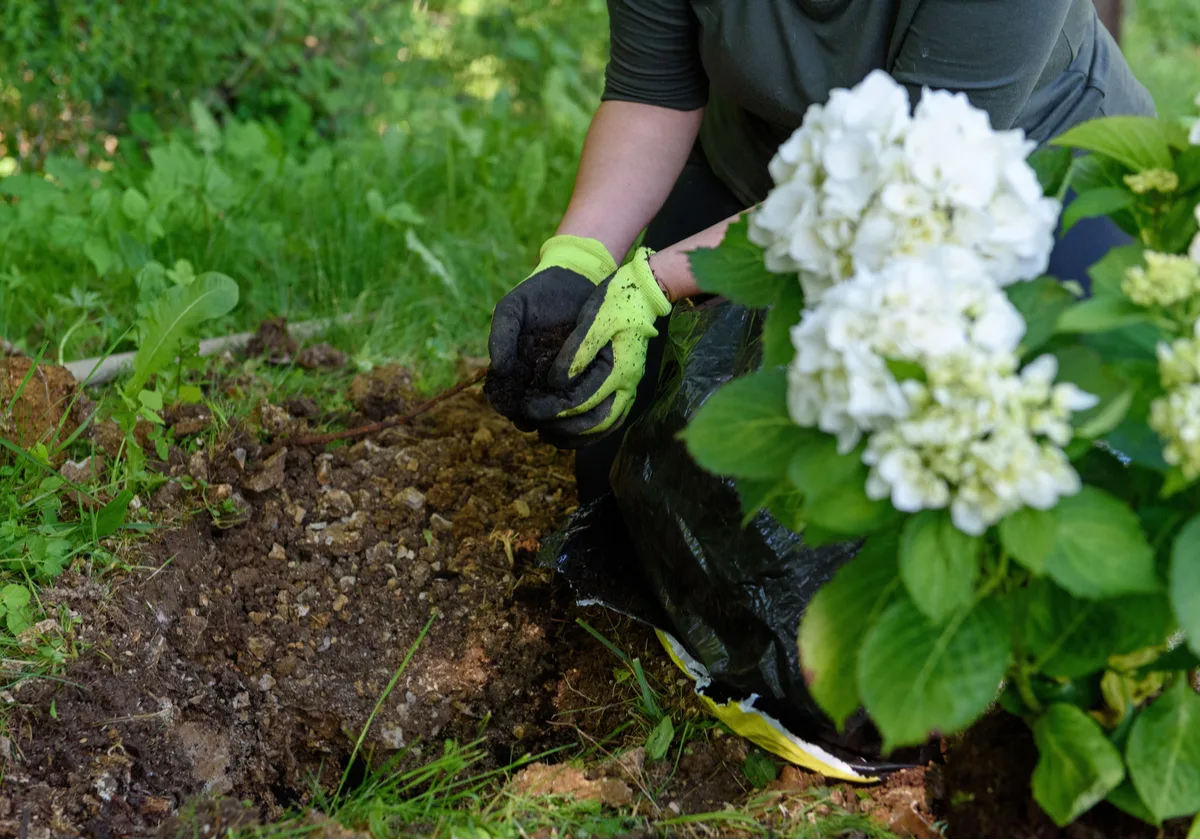
Hydrangeas are generally considered heavy feeders that require plenty of nutrients to flower to the best of their ability. If you’ve planted in nutrient-deficient soil, or have failed to fertilize for several years, you will eventually notice a lack of blooms that indicates nutrient deficiency.
Always start by planting in rich and fertile soil amended with plenty of organic matter. Then, follow a consistent fertilizing routine year after year to keep up nutrient levels and give these plants everything they need to flower effectively.
Incorrect Fertilizer
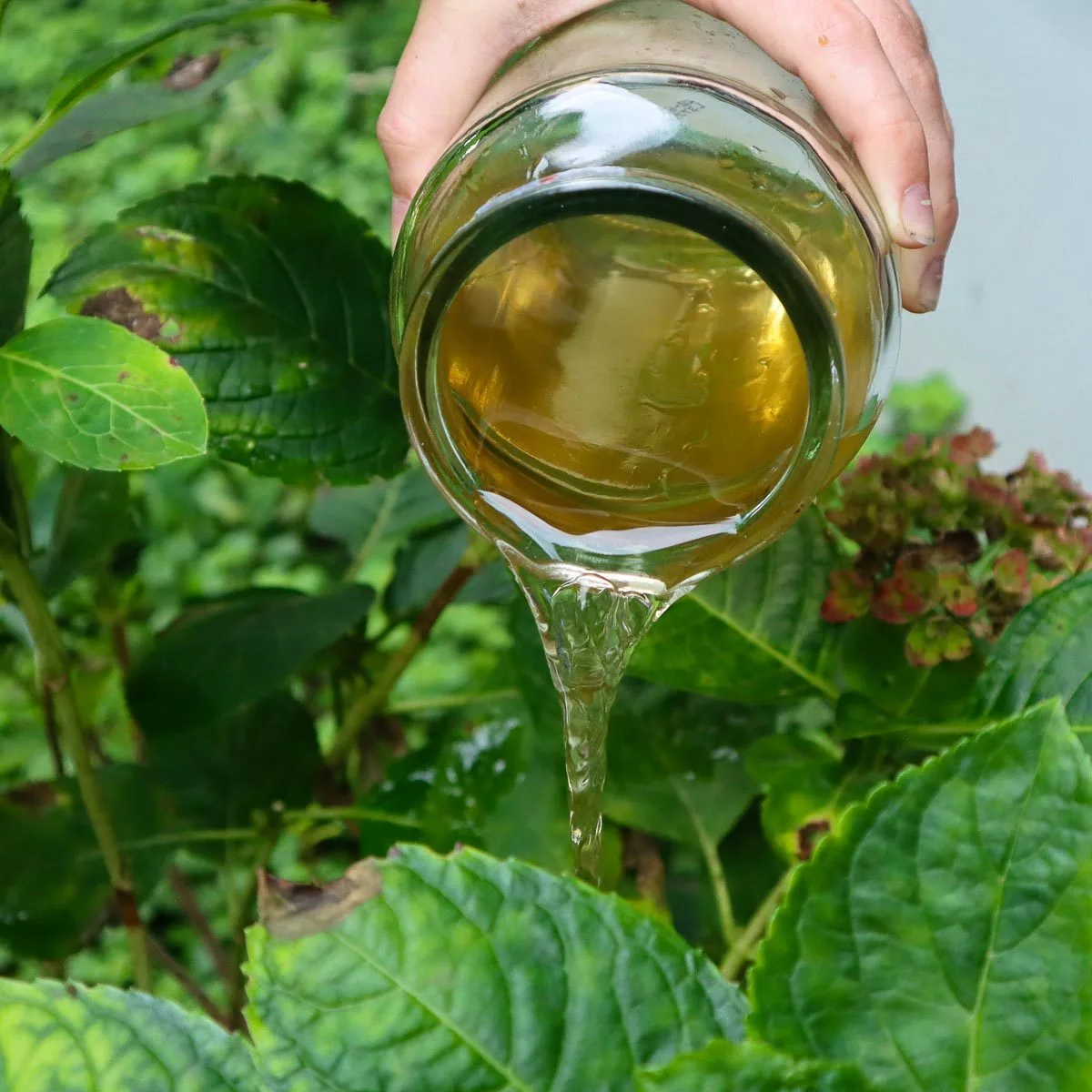
Lack of flowers isn’t always a sign of a lack of nutrients. It could also be a sign that your soil contains the wrong levels of nutrients, either before planting or from using the incorrect fertilizers.
Fertilizers higher in nitrogen and low in phosphorus can leave excess nitrogen in the soil. This pushes your Hydrangeas to develop more leaves and stems at the expense of blooms. If you’ve noticed plenty of new green growth during the season but no blooms, this is likely the cause.
To understand what’s going on beneath the soil, start by conducting a soil test. Once you understand the existing nutrient ratios, you can choose a fertilizer to combat any excess or deficiency to provide the ideal balance for flowering once again.
Here’s our guide to correctly fertilizing hydrangeas for abundant blooms year after year.
Lack of Moisture
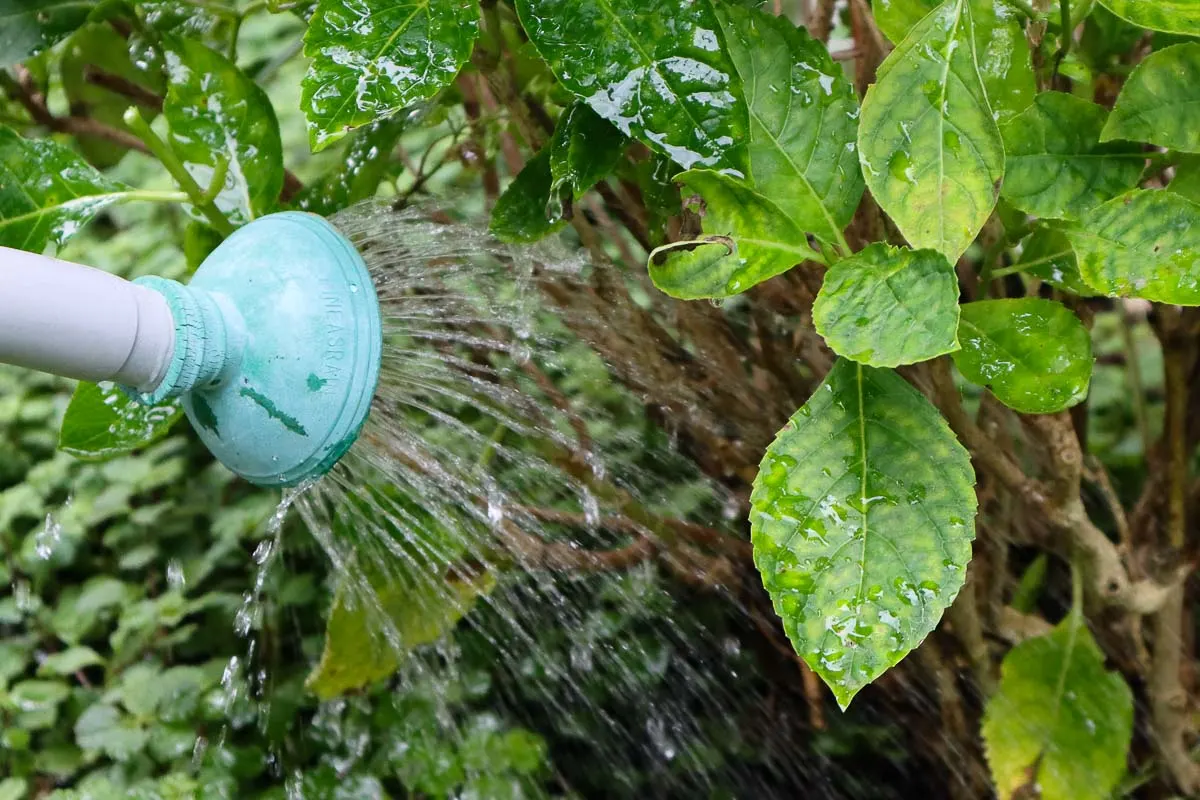
Hydrangeas are moisture-loving plants that need consistent water to flower. If the soil does not remain moist, the plant won’t have enough water for photosynthesis, providing the ‘food’ needed to push out flowers. Underwatered Hydrangeas become stressed, aiming to conserve water and focus on survival rather than producing blooms.
Water your Hydrangeas regularly, especially in summer. Never let the soil dry out completely, but make sure it drains well enough to prevent waterlogging. To help retain moisture in the soil, add compost before planting and mulch around the base to limit water loss during evaporation.
Incorrect Pruning Technique
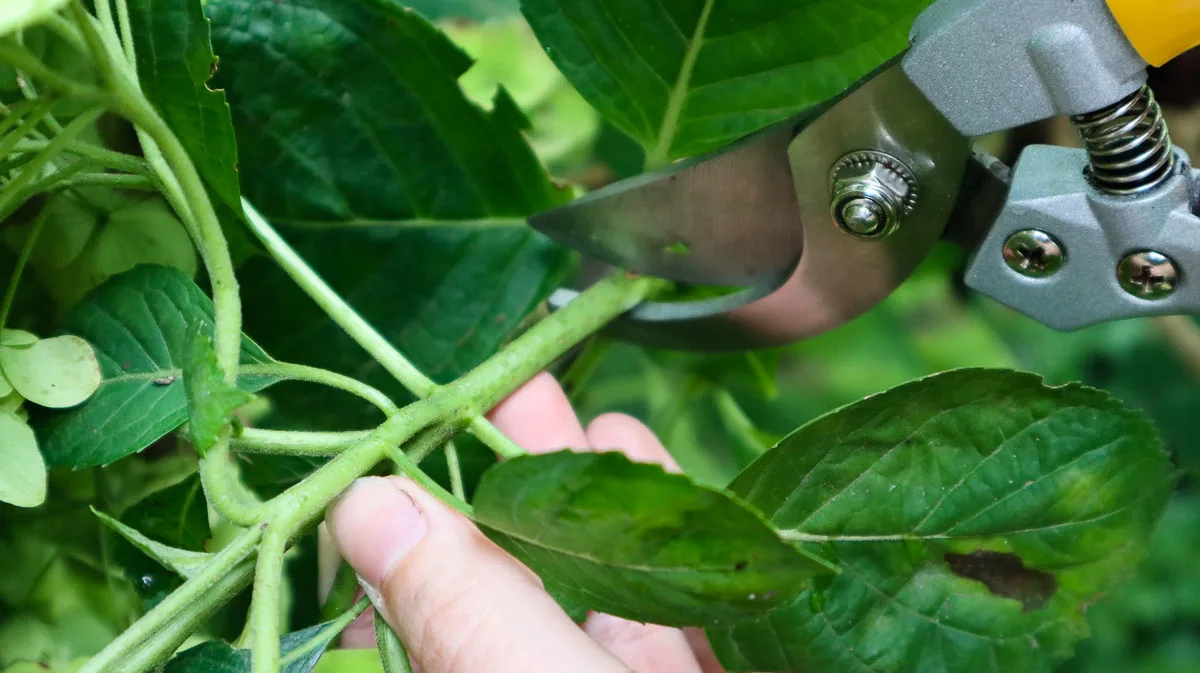
Pruning Hydrangeas can be a tricky task. That’s because there are slightly different pruning techniques, depending on which species you are dealing with.
Applying the wrong technique to a species is one of the most common reasons for lack of blooms. Some hydrangeas, like the popular H. macrophylla, only bloom on old wood. If you cut these buds off while pruning, there won’t be any left to turn into flower heads the following season.
There is no way to fix this problem during that season, you’ll simply need to wait till the following season for new buds to appear. To prevent it, follow our guide to pruning to ensure you don’t trim off any unexpected buds.
Pest Problems
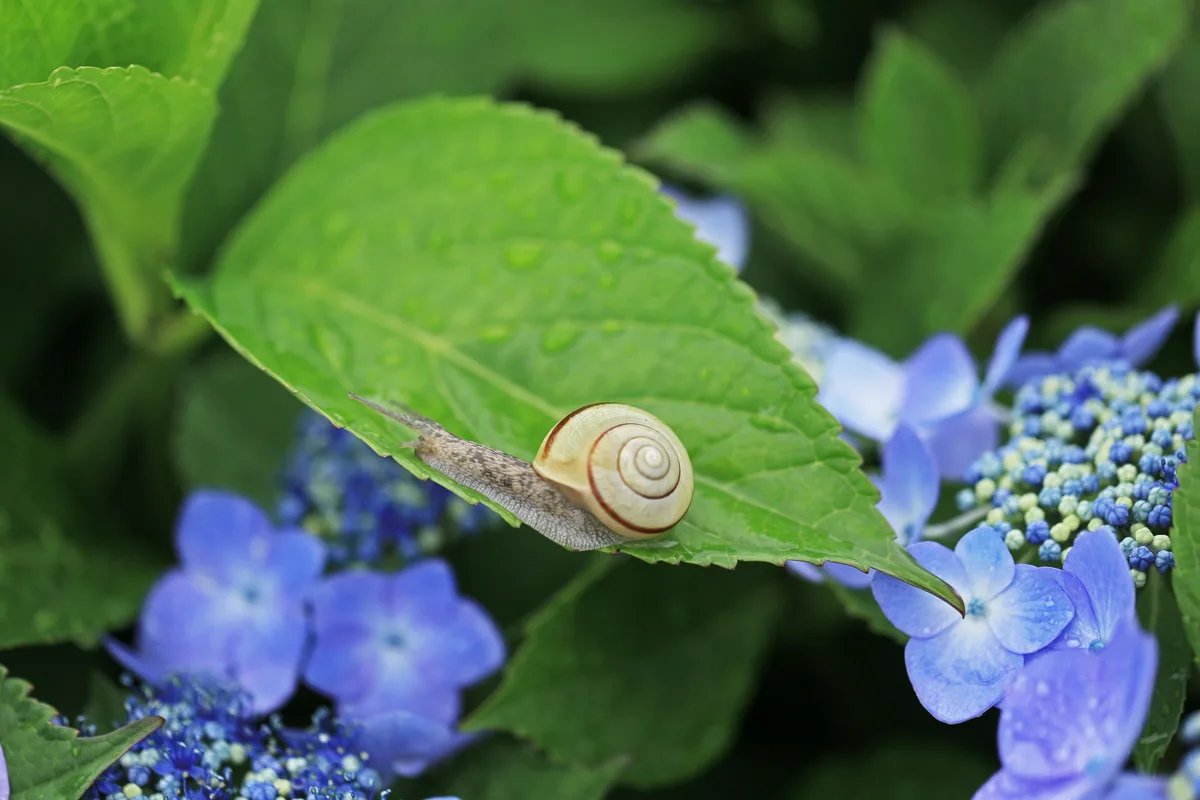
Hydrangeas are not the most prone plants to pest problems. However, they are not immune to these issues either. Several common garden pests like scale, beetles, aphids and especially slugs and snails find Hydrangea plants delicious and can quickly settle in. The damage these bugs cause weakens the plant and its ability to flower, resulting in a lack of blooms.
Deal with any pest problems you notice immediately. Use follow-up treatments to make sure all pests are completely gone. Make sure neighboring plants are also pest-free to stop the problem from spreading to your Hydrangeas.
CONTINUE READING IN PAGE 2




